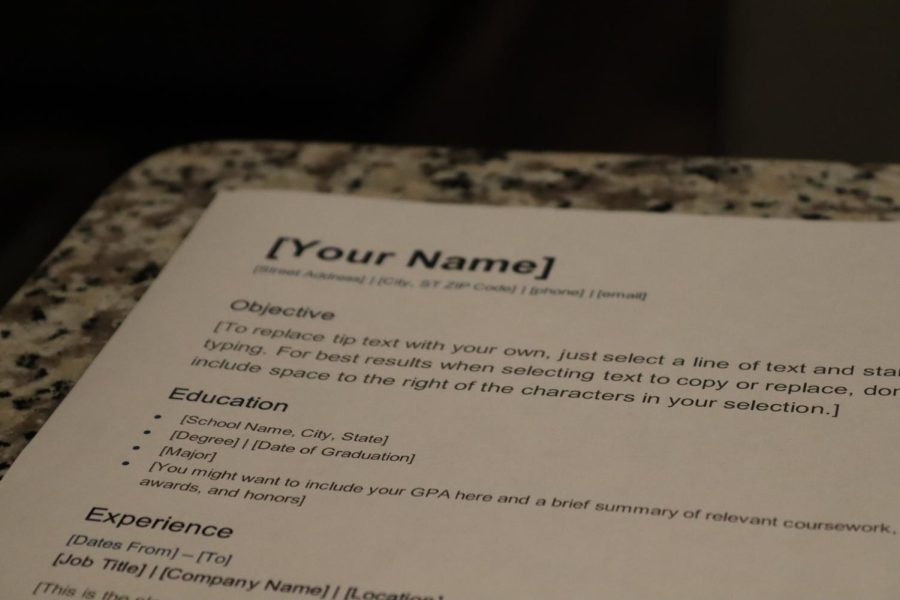- Beavers Digest / Cascades
- Beavers Digest / Cascades / Culture
- Beavers Digest / Cascades / Experience
- Beavers Digest / Culture
- Beavers Digest / Culture / Expression
- Beavers Digest / Experience
- Beavers Digest / Experience / Campus
- Beavers Digest / Experience / Create
- Beavers Digest / Experience / Wellness
Six essential sections to have on your next resume
By Solomon L. Myers, OMN Photographer
A resume outline sits on the counter. Job hunting can be an overwhelming experience, however, having a well-prepared resume is the first step in successfully landing a new job.
March 2, 2022
As college students, most of us are in need of a job or looking for one. While job hunting, a resume is essential, however, most people don’t actually know what to put on said resume. Here is a list of tips and tricks to help you get started on your next resume.
1. Contact information.
It’s vitally important that you put your contact information on your resume and an easy place to do it is just at the top right or left. Just include your email and your phone number and that can make your potential employers’ life a little simpler in the long run.
2. A resume introduction.
Include a small section or summary of your skills, experience or expertise relating to the specific position you are applying for. You will go into detail on all of this later. We are just giving them a reason to keep reading. You want to be brief and keep it right under your name. It is basically a ‘this is why you should hire me’ statement.
3. Previous work experience.
Now we can go more in depth about your previous experience in other jobs. List at least two or three if not more past work experiences and write the information for the place you worked. This could include the name, address and phone number of the organization or business and then your job title and a brief description of what you did in that role.
4. Skills and certifications.
This section is about certifications such as proficiency in software applications or if you have another certification you would like to share about. You can also list a set of skills that you have gained and go a little bit more in depth about why you have those skills. Keep this brief but don’t skip out on things you believe are important details.
5. Education.
This is a small section where you put the fact that you have your high school diploma or GED and if you have any degrees or are working on getting a degree. It is very brief and you just need to state the basics of your education. If you want, you could list the college or high school you attended but it’s not necessary.
6. Awards or achievements.
You can include another small section on any achievements or awards you have earned that you think pertain to either the job or your quality as an employee.
Now keep in mind you can tailor every resume to whatever job you’re applying for and you can also include many other things besides what are listed here. As you develop your portfolio, your resume will slowly grow and expand. Just take the time and put a little bit of work into making it look nice and try not to over explain or go overboard with your resume and you’ll be just fine!
Oregon State University’s Career Development Center can help OSU community members craft job materials that fit each individual’s specific needs. These resources include help with resumes, curriculum vitae, cover letters and references/letters of recommendation, as well as application tips and networking advice.
One very cool resource offered through the Career Development Center is VMock, a virtual resume reviewer. “VMock, a 24-7 online resume review tool available to Oregon State students, uses machine learning and natural language processing to provide you with instant personalized feedback on your resume or CV,” states the Career Development Center’s Resumes, CVs and Cover Letters webpage. “VMock is designed to work with resumes from many different fields. Once you receive the detailed feedback, make relevant changes to your resume and re-upload it to improve your score.”
We wish you good luck on your resume building and job hunting!






